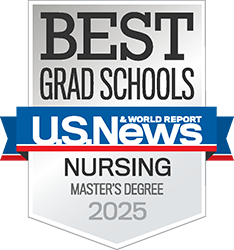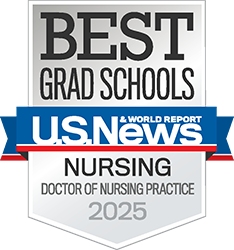Cancer care from the bench to the bedside Armstrong returns for Cizik Lecture


Improving the lives of patients with cancer diagnoses is a personal passion for Terri S. Armstrong, PhD, ANP-BC, FAANP, FAAN.
While her mother was being treated for leukemia, Armstrong would go from sleeping in her mom’s patient room to working shifts at The Ohio State University Hospital. Eventually, cancer would claim her mother, grandmother, great-grandmother, and two aunts.
“In a very short time, I lost all of the important women in my life,” she said as she shared her perspectives during the 2025 Jane and Robert Cizik Lecture at Cizik School of Nursing at UTHealth Houston.
Armstrong, an alumna of Cizik School of Nursing’s Doctor of Philosophy in Nursing program and former Dunn Distinguished Professor in Oncology Nursing at the school, returned to deliver the presentation, “Interconnectedness of Cancer Care and Research: From the Community to the Bench and Back Again.”
A scientist emerita of the National Institutes of Health (NIH), Armstrong retired in 2024 as senior investigator and deputy chief of the Neuro-Oncology Branch and the associate director for patient-centered outcomes at the Center for Cancer Research of the NIH/National Cancer Institute (NCI).
Armstrong dedicated her career to translational research aimed at improving the lives of patients with cancers of the brain and central nervous system (CNS). She co-led NCI-Connect (Comprehensive Oncology Network Evaluating Rare CNS Tumors), which was funded through the NCI’s Cancer MoonshotSM initiative. Her work has ranged from observational studies of symptoms among hundreds of patients, to laboratory research into genetic factors and how radiation treatment can affect parts of the brain that regulate sleep.
The interconnectedness of cancer research begins with the varied perspectives of patients, caregivers, health professionals, and researchers as teams focus on patient-centered outcomes to improve clinical and laboratory techniques. Progress depends on collaboration, said Armstrong, who thanked teammates who have helped further her research through the years at UTHealth Houston, The University of Texas MD Anderson Cancer Center, and other institutions.
“Science is something you never do alone,” she said. “Don’t feel like you have to be an expert in everything.”
Forty percent of Americans will face a cancer diagnosis at some point, and success can be measured by the ability of patients to enjoy active lives after diagnosis, Armstrong said. The cancers she chose to research are among the rarest and most deadly types, and most of her patients have not survived. Quality of life becomes an important consideration, but only the patient can decide what that means to them.
“The individual is going to determine what that is. We cannot,” Armstrong said while sharing the story of a patient whose personal goals shifted as his disease progressed.
Armstrong’s research centers on patient-reported outcomes (PROs), such as the symptoms of cancer and its treatments. Nurses may be resistant to collecting such information from patients because of additional work required, but apps that enable patients to self-report symptoms can put key information at nurses’ fingertips and help them focus on the most important issues to address during a visit.
For example, Armstrong has helped develop the My STORITM app for patients with brain and spine tumor and their caregivers, and Cizik School of Nursing faculty are working on similar projects related to pediatric oncology, head and neck cancers, breast cancer, and HIV.
Armstrong advised nurse scientists to trust their expertise and draw on their own perspectives to inspire their work. “Nothing matters more than your passion for what you do,” she said.
The Jane and Robert Cizik Lecture is an annual series made possible as part of a foundational $25 million gift in 2017 from Jane Cizik and her late husband, Robert. Their endowment also supports faculty research and student scholarships and made possible the establishment of the interprofessional Cizik Nursing Research Institute (CNRI) in 2024. Get the details on the resources available to CNRI members.



